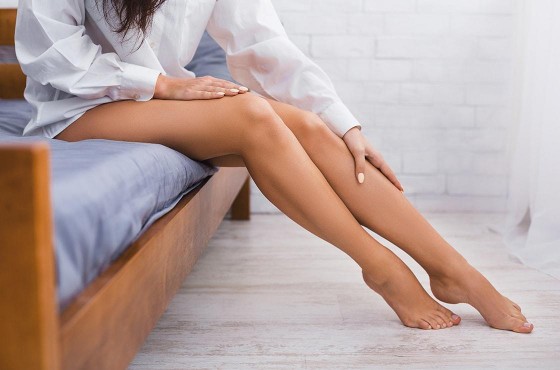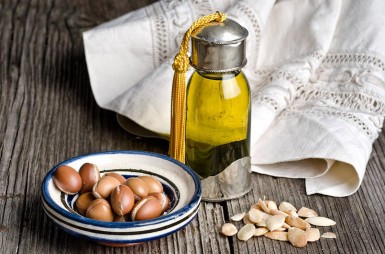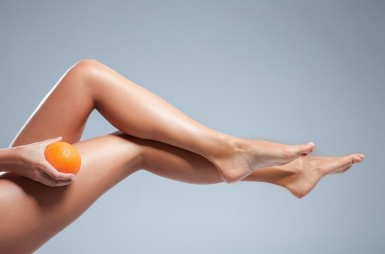Heavy legs:
what can you do to restore an effortless feeling of lightness?
Written by Paul Musset, Doctor in Pharmacy | published on | updated on 16/04/2024

The feeling of heavy legs is a condition that primarily affects women. This uncomfortable ailment is often the sign of a circulatory problem and can make everyday life particularly difficult to tolerate. What causes this unpleasant sensation of extra weight in the calves? Why are women particularly susceptible to it? Is there an effective way to relieve swollen, tired legs?
Heavy legs: A definition, risk factors and possible complications
What do we mean by “heavy legs”?
“Heavy legs” describes a type of discomfort felt in the lower limbs. There may be a range of symptoms, including:
- Swollen legs;
- Leg pain similar to cramp;
- Feelings of numbness, tingling or itchiness. These restless feelings can occur if you haven’t moved your legs for a prolonged period of time. Walking around will alleviate these symptoms.
Poor circulation at the heart of the condition
Venous insufficiency is responsible for the phenomenon of heavy legs. How does the venous system actually work? Firstly, it is important to distinguish between the veins and the arteries. The arteries allow the blood to travel from the heart to the organs, while the venous system is responsible for the opposite pathway (from the organs and limbs to the heart).
To facilitate the blood being pumped back, there are valves inside the veins which prevent it from backing up (venous reflux). However, sometimes the venous valves may fail, or the walls of the venous system lose their muscle tone. This is known as venous insufficiency and is primarily experienced as a feeling of heavy, tired legs.
Factors increasing the likelihood of heavy legs
There are a number of causes of heavy legs. These include:
- A family history of chronic venous disease;
- Hormonal changes (pregnancy, taking the contraceptive pill, menstruation, etc.);
- A lack of exercise or a sedentary lifestyle;
- Repeated standing;
- Intense heat causing dilation of the veins;
- Being overweight.
The feeling of heavy legs often manifests itself at the end of the day. For hormonal reasons, more women are affected than men. People who are on their feet all day are also more likely to suffer from tired legs.
Possible complications
In itself, having heavy legs is not a serious condition. However, if it occurs too frequently, it may indicate chronic venous disease. In addition, individuals who suffer from repeated bouts of heavy legs are more likely to develop varicose veins.
Other complications, such as phlebitis or venous thrombosis, may result from untreated venous insufficiency.
Exercise is advised in order to overcome heavy legs
As a lack of exercise is one of the factors triggering heavy legs, it is useful to participate in some form of physical activity focusing on the lower limbs. However, you must ensure that this does not damage your weakened veins. Sports that benefit the circulation include cycling, swimming and aqua gym.
Effective ways of bringing relief to heavy legs
To prevent a mere discomfort from turning into a more serious health condition, such as chronic venous insufficiency or phlebitis, it is vital to take action if you regularly experience heavy legs.
Here are some things you can do which should help put an end to that feeling of permanently tired legs.
Daily habits to adopt to relieve heavy legs
For some individuals, simply adopting new habits may be enough to tackle heavy legs and allow your veins to regain their muscle tone. We advise the following daily approach:
- Move more: If you have a very sedentary lifestyle or you are on your feet for long periods of time, it is vital to walk briskly for approximately twenty minutes a day. Every step you take will give your venous system a boost and improve blood flow.
- Promote the drainage of your legs (detoxification) by using a hot/cold treatment on your lower limbs. Hot water will dilate your veins while cold water will encourage the elimination of toxins. In combination, these will boost your circulation.
- Avoid tight clothing which prevents effective blood circulation.
- Elevate the foot of the bed to improve the blood flow and reduce leg pain at night.
Extra support from dietary supplements
Alongside these useful ways to boost the venous system, you may also find dietary supplements beneficial.
Some plants are known for their ability to tackle venous insufficiency. These include:
- Red vine leaves which act on the stretchy fibres lining the walls of the vein to reduce vascular dilation.
- Blackcurrant: a powerful venotonic agent which can increase the resilience of the blood vessels.
- Witch hazel: a plant with renowned astringent properties, which tighten the tissues, and its vasoconstrictive properties, which tighten the blood vessels, thereby improving venous return.
At Cocooncenter, you can take advantage of the benefits of all these plants thanks to our selection of the best dietary supplements to boost blood circulation.
Treatments to relieve heavy legs
In conjunction with the sensible habits we have already mentioned, it is also possible to bring relief to heavy legs using specific, plant-based topical skincare treatments.
Cocooncenter has selected a wide range of effective products to help your legs feel lighter. In particular, you will find a wide range of gels which can refresh your legs while actually strengthening the venous system and stimulating blood circulation.
Natural remedies using essential oils
In addition to harnessing the power of plants in the form of dietary supplements or gels, you can also benefit from the essential oils they contain.
For instance, patchouli oil is an excellent, proven venous tonic while atlas cedar helps to eliminate toxins. Thanks to its decongestant properties, cypress essential oil is also regularly used to stimulate blood circulation.
Finally, peppermint essential oil has an extremely refreshing effect on tired legs. Please bear in mind that essential oils are powerful remedies and you should exercise caution when using them, particularly during pregnancy or breastfeeding.
The sensation of heavy legs is a very common condition, particularly among women. Suffering from occasional bouts is nothing to be concerned about. However, to prevent a mere discomfort from becoming a more serious condition, action is required if your symptoms occur frequently.
Heavy legs: three key takeaways:
- In most cases, heavy legs are the result of poor circulation and venous insufficiency;
- Changes to lifestyle and diet, combined with dietary supplements or skincare, may be all it takes to tackle heavy leg syndrome.
- If symptoms persist despite appropriate care, you are advised to seek a medical consultation to assess the risk of chronic venous disease.
























